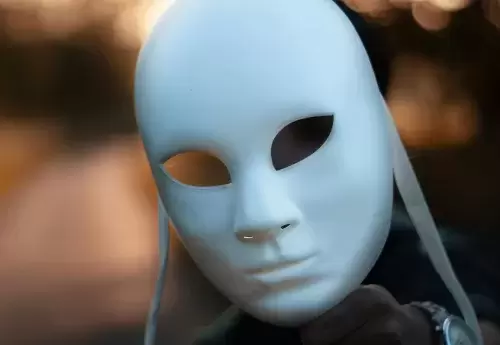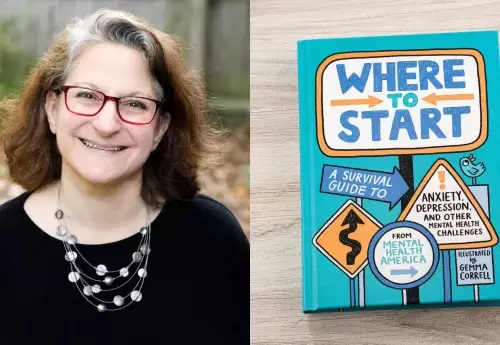
By Shannon Hazlitt, Social Media Specialist, bp and esperanza Magazines
On March 30th each year, the world comes together to raise awareness of a mental health disorder that affects nearly 6 million Americans, each in a distinctive way.
Bipolar disorder has an impact that goes far beyond numbers. I’ve learned this working at bp Magazine for Bipolar, a print and online publication that educates and empowers people dealing with bipolar. I have been incredibly inspired by our bipolar community’s strength and resilience through interacting with bloggers, professional writers, social media followers, and mental health partners.
So, on World Bipolar Day, here are some aspects of bipolar disorder that are important to understand, so you can help combat social stigma:
- Bipolar disorder affects every aspect of life: It may be difficult to fully comprehend the toll bipolar disorder can take on someone because it is an invisible illness. As bp Magazine vlogger Natasha Tracy describes in a powerful video, it can be as crippling --impacting relationships, working, and all aspects of everyday life—from sleeping to showering.
- Bipolar disorder has many causes, from genetics to life events: After a study that spanned nearly two decades, a team from the University of Michigan found that there is no single genetic change, life event, or chemical brain imbalance that could be the root cause of bipolar disorder. Many times, it is a combination of several biological and environmental factors that can trigger bipolar disorder.
- Bipolar disorder rarely exists alone: As if a mood disorder that involves long-spanning depressions and manic episodes wasn’t enough to deal with, bipolar disorder can also come with other physical and psychological conditions to worry about. These include metabolic disorders and migraines.
- Everyone’s bipolar disorder is different: Bipolar disorder is like fingerprints and snowflakes—no two people have the exact same symptoms and each diagnosis can vary greatly. However, there are two main types of bipolar disorder: Bipolar I which is characterized by one or more manic episodes that last at least a week and require hospitalization; and bipolar II, which is characterized by more depressive episodes.
- There are many celebrities that live with bipolar disorder: Celebrities including Demi Lovato, Richard Dryfuss, and Mary Lambert are using their high-profile platform to combat bipolar disorder stigma. Demi Lovato in particular is making headlines for bringing the CAST Foundation on her Tell Me You Love Me Tour. CAST is an extension of a Los Angeles-based mental health awareness organization that Demi says helped her stay sober for six years.
- There may be a creativity connection: Did you know that World Bipolar Day occurs on Vincent van Gogh’s birthday? Van Gogh, considered one of the most influential artists of all time[7], was posthumously diagnosed as having bipolar disorder. Another famous face of creativity is Carrie Fisher, known for her role as Princess Leia in the Star Wars franchise. She’s considered a heroine for rebelling against mental health stigma.
- It is life-threatening, and support is vital: An estimated 1 in 5 people diagnosed with bipolar disorder dies by suicide. World Bipolar Day is an opportunity to show those living with the day-to-day challenges of this condition they are not alone, they have your support, and there is always hope.
Living with bipolar disorder may not be easy, but as van Gogh himself once said: “The beginning is perhaps more difficult than anything else, but keep heart, it will turn out all right.”
 Shannon Hazlitt Harts is a Social Media Specialist for bp and esperanza Magazines. She helps manage bp Magazine and award-winning bpHope blog and coordinates bp and esperanza Magazines. bp Magazine for bipolar disorder and esperanza Magazine for anxiety and depression feature inspirational first-person profiles combined with educational resources and the latest news and research to help readers build healthier lifestyles as well as mental wellness.
Shannon Hazlitt Harts is a Social Media Specialist for bp and esperanza Magazines. She helps manage bp Magazine and award-winning bpHope blog and coordinates bp and esperanza Magazines. bp Magazine for bipolar disorder and esperanza Magazine for anxiety and depression feature inspirational first-person profiles combined with educational resources and the latest news and research to help readers build healthier lifestyles as well as mental wellness.
Shannon also helps oversee bp and esperanza’s online hubs, bpHope.com and HopeToCope.com, where you can find resources to increase awareness of bipolar disorder, anxiety and depression, including profiles from celebrities such as Demi Lovato, Kristen Bell, Howie Mandel, and Mary Lambert. You can follow bp Magazine on Facebook here and esperanza on Facebook here.
Shannon graduated from Syracuse University in December 2014 and previously worked at a television news station as well as a newspaper. You can follow her on Twitter @ShanHazlitt.




